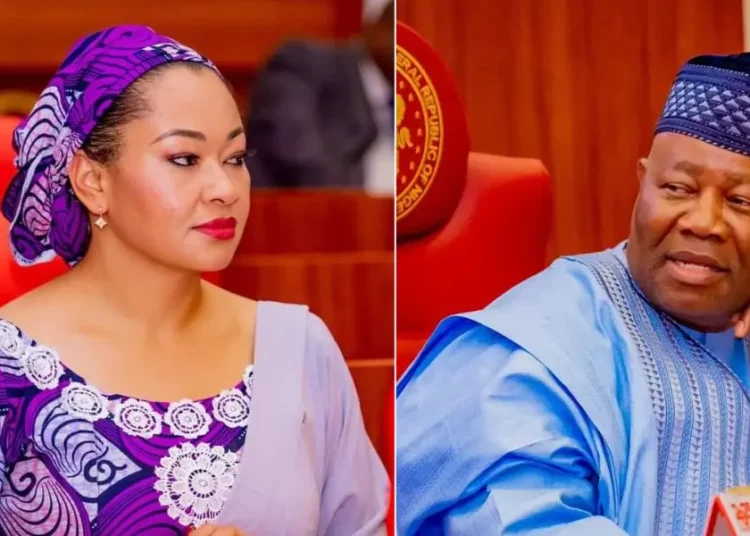Headlines
Kano Gov Approves Appointment of Three Second Class Emirs

The Kano State Governor, Abba Yusuf, has approved the appointment of three second-class emirs, according to an announcement by the Director General of Press to the Governor, Sanusi Bature.
They are: Alhaji Muhammad Mahraz Karaye, Emir of Karaye, Alhaji Muhammad Isa Umar, Emir of Rano, and Alhaji Aliyu Ibrahim Abdulkadir Gaya, Emir of Gaya.
The appointments that take effect immediately will see the new emirates serving as second with Kano as first-class emirate.
Yusuf named the newly appointed Alhaji Muhammad Karaye as the Emir of Karaye. He was the District Head of Rogo before his latest appointment.
Alhaji Muhammad Umar was named the Emir of Rano. He was the District Head of Bunkure before the latest appointment.
The governor also named Alhaji Aliyu Abdulkadir Gaya as the Emir of Gaya. He was the emir of the defunct Gaya emirate, who was dethroned among others recently.
The development follows the signing of the Kano State Emirate Council Establishment Bill 2024 into law by the governor on Tuesday.
The legislation, passed by the State House of Assembly, aims to bridge the gap between the grassroots and the government while sustaining the rich cultural values and norms of the people.
The new law establishes second-class Emirate Councils in Rano, Gaya, and Karaye, each responsible for specific local government areas.
Governor Yusuf said, “The Rano Emirate consists of Rano, Kibiya, and Bunkure Local Government Areas. Gaya Emirate consists of Gaya, Albasu, and Ajingi Local Government Areas while Karaye Emirate consists of Karaye and Rogo Local Government Areas.”
According to the governor, these councils will have powers to advise the Emir of Kano on matters related to the maintenance of public order and boundary disputes within their jurisdictions.
Speaking after the signing ceremony, the governor emphasised the law’s importance. “This law is vital in sustaining the rich cultural values and norms of our people. It will also bridge the gap between the grassroots and the government,” he said.
The existing Kano Emirate Council, headed by a first-class Emir as Chairman, will be supported by these second-class Emirate Councils.
The jurisdiction of the second-class emirates will be limited to their respective local government areas.
The Speaker of the House, Jibrin Falgore, reiterated the Assembly’s commitment to promoting the well-being of Kano State’s people. “We are dedicated to passing laws that enhance the governance structure and improve the lives of our citizens,” he stated.
This development is expected to have a positive impact on the governance structure of Kano State, ensuring that traditional institutions play a crucial role in local administration and cultural preservation.
Back in May, the governor dethroned Emir Aminu Ado Bayero as Kano Emir and reinstated Emir Muhammadu Sanusi II about six years after the former bank chief was removed by former Governor Abdullahi Ganduje.
The controversial decision has thrown up legal fireworks in the state.
Headlines
Shettima’s Comments Misrepresented, Says Presidency

The Presidency has dismissed claims that Vice President Kashim Shettima’s recent comments were directed at the political situation in Rivers State or President Bola Ahmed Tinubu’s constitutional decisions on the matter.
In a statement on Friday by the Senior Special Assistant to the President on Media and Communications (Office of the Vice President), Stanley Nkwocha, the Presidency described the reports as a “gross misrepresentation.”
The statement clarified that Vice President Shettima’s remarks at the public presentation of a book by former Attorney General of the Federation, Mohammed Bello Adoke (SAN), were misconstrued by some online platforms and individuals.
“These reports have distorted the Vice President’s comments in pursuit of a mischievous agenda,” it stated.
“They twisted his account of how the administration of former President Jonathan considered removing him as Borno Governor during the insurgency to falsely link it with current events in Rivers State.”
The Vice President, who spoke at the launch of OPL 245: The Inside Story of the $1.3 Billion Oil Block in Abuja on Thursday, was said to have referenced the past solely to commend Adoke’s professionalism while in office, and to reflect on Nigeria’s constitutional evolution regarding federal and state relations.
“For the avoidance of doubt, President Tinubu did not remove Governor Fubara from office. The constitutional measure implemented was a suspension, not an outright removal.
“This action was taken in response to the grave political crisis in Rivers State at the time, with the governor facing a looming impeachment and the State Assembly complex under demolition,” Nkwocha clarified.
The Presidency insisted that the action taken by President Tinubu in declaring a state of emergency and suspending the Governor was fully in line with Section 305 of the 1999 Constitution (as amended), which authorises such measures when there is a breakdown of public order requiring extraordinary intervention.
According to the statement, the President’s proclamation invoking Section 305(2) was subsequently ratified by an overwhelming bipartisan majority in the National Assembly, confirming the legitimacy and constitutional propriety of the decision.
“The action of President Tinubu in suspending Mr. Fubara and others from exercising the functions of office averted the governor’s outright removal. To conflate suspension with removal is misleading,” the statement further noted.
Nkwocha also stressed that Vice President Shettima’s comments were delivered extemporaneously and intended to underline the importance of public accountability and historical documentation.
He referenced the Vice President’s mention of past public servants, including Adoke and former Speaker Aminu Waziri Tambuwal, to illustrate principled leadership.
“His remarks were not in any way a criticism of President Tinubu’s actions, which the Vice President and the entire administration fully support and stand by without reservation,” the spokesman stated.
The Vice President, the statement added, remains in “loyal concert” with President Tinubu and is committed to implementing all constitutional measures necessary to safeguard democracy and uphold order across the country.
Concluding, the Presidency called on media organisations and political actors to desist from misrepresenting public remarks for sensational or partisan purposes.
“We urge media organisations and political actors to desist from the destructive practice of wrenching statements from context in order to fabricate nonexistent conflicts,” Nkwocha said.
Headlines
Akpabio Relieves Natasha of Committee Chairmanship Position, Appoints Akwa Ibom Senator As Replacement

Senate President, Godswill Akpabio, has replaced suspended Senator Natasha Akpoti-Uduaghan, as the Chairman, Senate Committee on Diaspora/Non-Governmental Organisations.
In her place, Akpabio named Senator Bassey Aniekun Etim (Akwa Ibom -East).
The Senate President, who made the announcement on the floor in Abuja on Thursday, did not give any reasons.
The committee position had remained vacant since March when the Senate suspended the Kogi-Central Senatorial District lawmaker for six months for flouting the Senate’s rule on the seating arrangement and seat allocation.
The suspended lawmaker, at a point, chaired the Senate Committee on Local Content before Akpabio reassigned her to the Committee on Diaspora/NGO, shortly before she ran into trouble with the Senate over her conduct on seat allocation.
Headlines
Supreme Court Upholds Election of Monday Okpebholo As Edo Governor

The Supreme Court has affirmed the 2024 governorship election victory of Governor Monday Okpebholo of the All Progressives Congress (APC), dismissing the appeal filed by the Peoples Democratic Party (PDP) candidate, Asuerinme Ighodalo.
In a unanimous decision by a five-member panel led by Justice Mohammed Garba, the apex court ruled that the appeal lacked merit. It upheld the earlier judgments of the Court of Appeal and the Edo State Governorship Election Petition Tribunal, which had both declared Okpebholo the validly elected governor.






